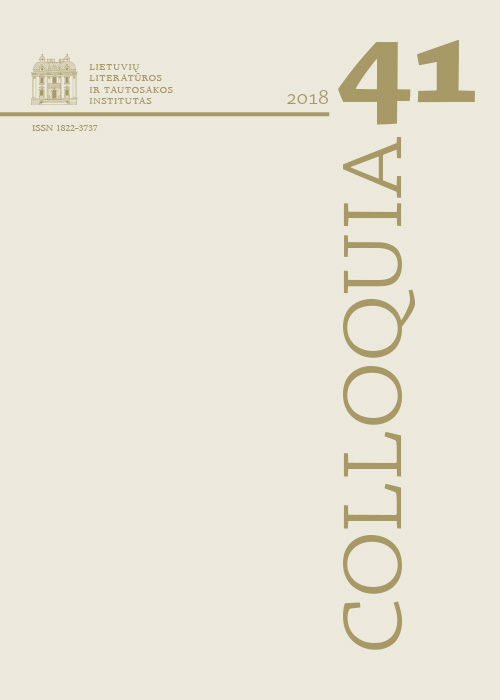Europietiškumo apraiškos lietuvių sovietmečio poezijoje: estetinis tapatybės laisvinimas
Santrauka
Straipsnyje siekiama aptarti europietiškumo apraiškas ir jas punktyriškai nužymėti XX a. antros pusės poezijoje, būtent panašiu laikotarpiu sukurtuose Eduardo Mieželaičio ir Sigito Gedos eilėraščiuose. Tam pasirenkama Vytauto Kavolio kultūros sociologijos prieiga, leidžianti analizuoti tapatybę remiantis trilype kultūros samprata ir ją matyti ne tik kaip individualią asmens laikyseną, bet ir kaip kolektyvines mąstymo ir bendrumu paremto savęs apibrėžimo formas. Keliama hipotezė, kad lietuviškumas buvo atviras europietiškai tapatybei, kuri turėjo galimybę egzistuoti sovietmečio poezijoje. Straipsnyje dėmesys kreipiamas į poetinių tekstų poveikį skaitytojui, santykį su Europos literatūros kontekstu ir iš to kylančius įvaizdžius bei jų konfigūracijas.
Atsisiuntimai
Skaitomiausi šio autoriaus(ų) straipsniai
- Gintarė Bernotienė, Karolina Bagdonė, Gitana Vanagaitė, Doktorantūra Lietuvoje - ,,be lūkesčių, gairių ir studijų politikos'' , Colloquia: T 47 (2021)
- Karolina Bagdonė, Jono Aisčio ir Sigito Gedos atviros kultūrinės tapatybės samprata: tarp universalumo ir tautinės savisaugos , Colloquia: T 49 (2022)
- Karolina Bagdonė, Lyginamoji literatūra globaliame kontekste: politika, akademinė literatūra ir komparatyvizmo ateitis , Colloquia: T 54 (2024): Colloquia
- Karolina Bagdonė, Barbora Gudavičiūtė, Lyginamoji literatūra postkritinių teorijų epochoje: grėsmė ar galimybė? , Colloquia: T 56 (2025): Colloquia
